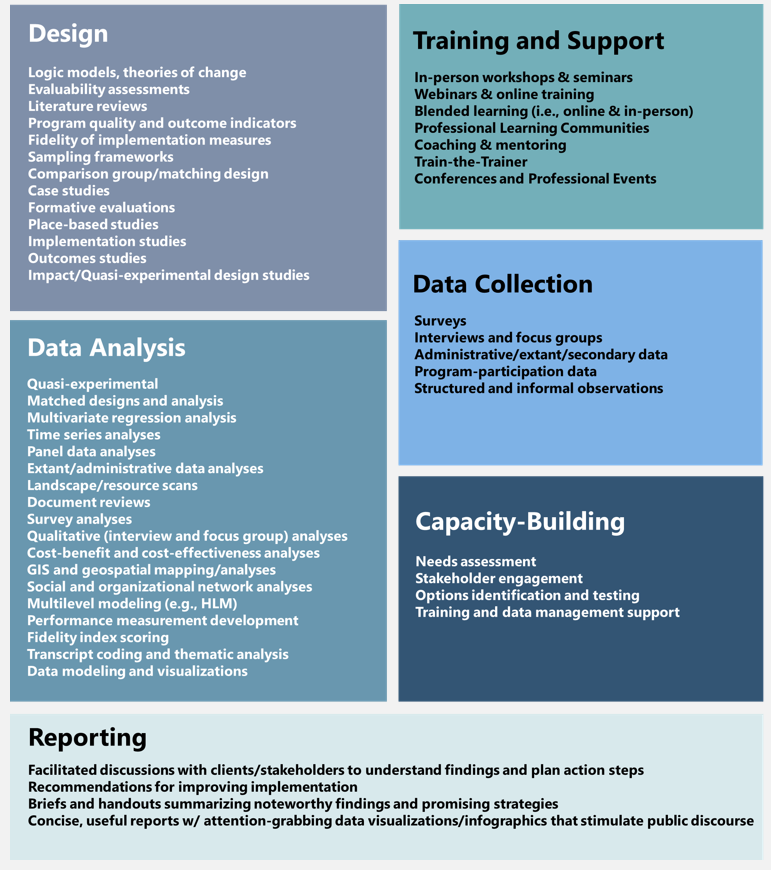PSA staff are highly skilled in data collection and analysis as well as in building the evaluation capacity of its clients. PSA’s designs, analyses, and reports focus on understanding and unpacking the often-complicated relationship between interventions and outcomes.
Skilled in both quantitative and qualitative analysis techniques, PSA staff frequently combine data types to produce a robust assessment of program implementation and outcomes. Depending on client needs, PSA reports may identify strengths and weaknesses of program implementation, recommend ways to build capacity or improve program outcomes, or suggest options for program sustainability and future growth.


